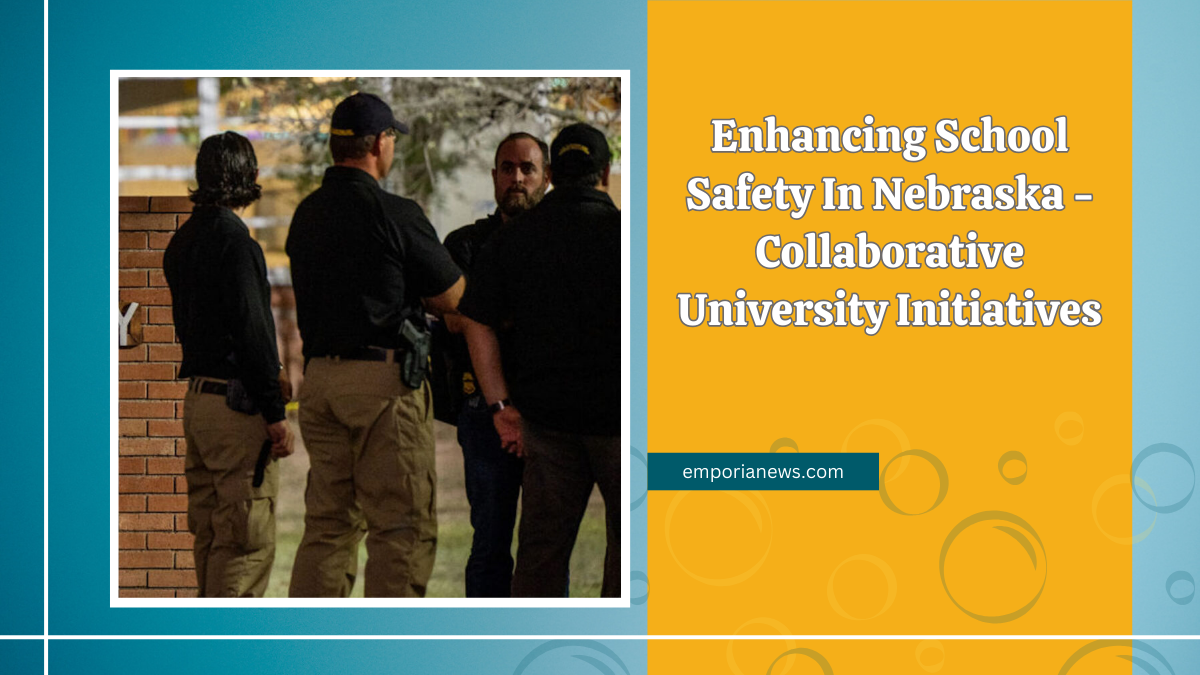Ensuring the safety and well-being of students and staff in educational settings is paramount. In Nebraska, university partnerships, particularly those spearheaded by the University of Nebraska Public Policy Center (PPC), are at the forefront of advancing school safety measures.
These collaborations focus on comprehensive strategies, including threat assessment training, mental health support, and emergency preparedness, to create a secure and supportive environment in schools.
Comprehensive Threat Assessment and Management Training
A key initiative led by the PPC involves providing behavioral threat assessment and management training. This program equips educators, law enforcement personnel, and mental health professionals with the skills to identify and address potential risks of targeted violence within schools.
Between July 2018 and December 2024, a total of 2,220 K-12 school attendees completed this training.
Notably, in the past two years alone, 830 Nebraska K-12 school staff members received training through a partnership with the Educational Service Unit Coordinating Council and the Nebraska Department of Education.
Promoting Mental Health Awareness in Schools
Recognizing the critical link between mental health and school safety, the PPC emphasizes the importance of mental health awareness.
Through sustainable training programs, the center offers Psychological First Aid for Schools (PFA-S), an evidence-based intervention designed to support students, families, and school personnel in the immediate aftermath of emergencies.
The Substance Abuse and Mental Health Services Administration awarded the PPC a Mental Health Awareness Training grant, facilitating the training of 367 educators in PFA-S techniques. Impressively, 87.5% of participants reported an increase in their knowledge of psychological first aid methods.
Additionally, “Train-the-Trainer” workshops have prepared 52 individuals to deliver PFA-S training regionally, ensuring the continuous education of new educators in mental health response strategies.
Strengthening Emergency Preparedness in Schools
Emergency preparedness is a cornerstone of school safety. In collaboration with the Nebraska Department of Education, the PPC has undertaken a six-year project to evaluate and enhance School Emergency Operations Plans (EOPs).
These plans address a wide array of potential emergencies, from natural disasters like tornadoes and floods to human-induced incidents such as active shooter situations and hazardous material spills.
Since 2017, the PPC has reviewed nearly 300 EOPs, conducted 24 safety tabletop exercises with 373 participants, and developed 25 informational resources to bolster schools’ readiness for emergencies.
Annual Mental Health Training for School Personnel
To further support student well-being, Nebraska mandates annual mental health training for school staff. This requirement aims to equip educators with the knowledge to recognize suicide warning signs and create a supportive environment for at-risk students.
In response, the PPC collaborated with partners to develop an online course titled “Building a Suicide-Safe School Community.” Since its inception in 2018, this course has been completed 57,754 times, with 7,143 completions in 2024 alone.
These efforts ensure that educators are well-prepared to identify and support students who may be experiencing mental health challenges.
Collaborative Efforts and Statewide Impact
The success of these initiatives is largely attributed to the collaborative efforts between the PPC and various state and local partners.
Jay Martin, director of school safety and security at the Nebraska Department of Education, highlighted the significance of this partnership, stating, “Our collaboration on projects has relied on [the Public Policy Center’s] expertise in research to aid us in receiving candid feedback to bring about better outcomes in school safety and mental health programs.”
Advancing Mental Health Services in Rural Schools
Addressing the unique challenges faced by rural school districts, the PPC has evaluated and supported mental health programs through partnerships funded by the Advancing Wellness and Resiliency in Education (AWARE) initiative.
These projects have expanded mental health services, increased awareness, and built school capacity to support student well-being.
By presenting tools for assessing culturally appropriate mental health services and strategies to combat mental health stigma, the PPC has played a pivotal role in enhancing the mental health landscape in rural Nebraska schools.
Key Initiatives and Their Impact
| Initiative | Timeframe | Participants/Impact |
|---|---|---|
| Threat Assessment Training | July 2018 – Dec 2024 | 2,220 K-12 attendees trained; 830 staff trained in the last two years |
| Psychological First Aid for Schools | Ongoing | 367 educators trained; 87.5% reported increased knowledge; 52 trainers prepared regionally |
| Emergency Operations Plan Evaluation | Since 2017 | Nearly 300 plans reviewed; 24 tabletop exercises with 373 participants; 25 resources developed |
| Suicide Prevention Online Course | Since 2018 | 57,754 course completions; 7,143 in 2024 |
| Mental Health Support in Rural Schools | Ongoing | Expanded services and awareness; tools and strategies presented to address mental health stigma |
Through these multifaceted initiatives and robust partnerships, Nebraska is making significant strides in creating safer and more supportive school environments for both students and staff.
FAQs
What is the focus of the University of Nebraska Public Policy Center’s school safety initiatives?
The PPC focuses on comprehensive strategies, including threat assessment training, mental health support, and emergency preparedness, to enhance school safety in Nebraska.
How does the Psychological First Aid for Schools program benefit educators and students?
This program equips educators with evidence-based techniques to support students and staff immediately after emergencies, fostering both short-term and long-term coping mechanisms.
What is the purpose of the “Building a Suicide-Safe School Community” online course?
The course aims to train school personnel to recognize suicide warning signs and implement postvention measures, creating a supportive environment for at-risk students.




